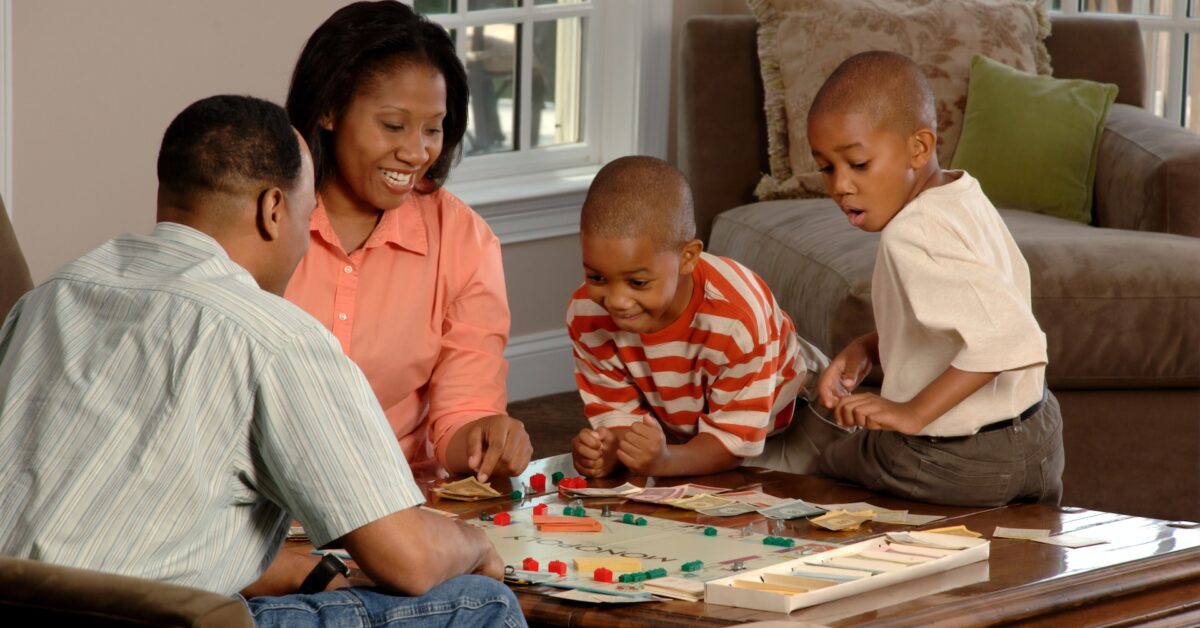Whether your child is playing alone or with others, board games train their ability to listen and follow instructions. They also develop logical thinking and the ability to handle setbacks.
They Help Kids Develop Math Skills
Researchers have found that board games can improve children’s math skills. This is especially true for number-based board games like Monopoly, Snakes, Ladders, and Dominoes. Kids who play these games are better at counting, adding, and recognizing when one number is higher than another.
This is according to research published in the journal Early Years. The studies examined 19 board game programs — or interventions — that involved kids playing structured, educational board games with an adult, such as a teacher, therapist, or parent.
The intervention sessions lasted, on average, twice a week for 20 minutes over one-and-a-half months. The research team evaluated kids’ math performance before and after the board game sessions designed to encourage skills such as vocal counting.
The researchers from Pontificia Universidad Catolica de Chile discovered that board games, especially those with fixed rules and where the moves made by players determine the overall playing situation, provide an ideal learning environment for children.
That’s because they expose young children to multiple representations of numbers. For example, when a child rolls a die and moves a piece on the board, he learns that for every spot he moves, he adds one to himself. This is known as one-to-one correspondence, which is the foundation of mathematics.
They Help Kids Develop Social Skills
Many board games require children to cooperate with other players and practice healthy competing methods. The social skills they learn from these experiences can help them in other aspects of life, like dealing with setbacks or resolving conflicts with friends and family members.
Following instructions is a big part of playing board games and can help kids develop their reading, writing, and math. One study found that structured board game sessions under adult supervision enhanced children’s mathematical abilities.
In addition, when children lose at a board game or see others experience setbacks, they can learn how to deal with disappointment and persevere through difficult situations in a low-risk environment.
This resilience can help them in their schooling as they overcome challenges and build a positive attitude towards failure. This way, they can develop a more mature approach to problem-solving and learn that multiple attempts are often necessary for success.
They Help Kids Develop Language Skills
The concentration skills that children develop while playing board games can be transferred to other areas of their lives, like schoolwork or problem-solving tasks. Games such as chess, Go, and Sudoku help kids learn to focus on the task at hand and think strategically. They also help kids develop the ability to follow directions, a necessary skill in school and work life.
The games also allow kids to experience various emotions, from excitement and joy to frustration and disappointment. In doing so, they learn how to regulate their emotions and handle setbacks in a safe environment.
Most importantly, educational board games help kids improve their vocabulary by teaching them new words and allowing them to practice them in a meaningful context. This is especially true for games that involve reading, such as a game that requires players to read the rules or cards. Kids can also learn to use spatial language by discussing where the game pieces are on the board or using phrases such as “near, next to, behind, or beyond.”
They Help Kids Develop Attention Span
Board games are fun, engaging activities that help kids develop a longer attention span. They also promote creative thinking and provide practice in logical reasoning. They can even teach children to anticipate their opponent’s moves and plan accordingly.
Playing board games requires patience and verbal communication with others, which are both great exercises for developing a longer attention span. In addition, playing these games helps kids learn how to follow rules and listen carefully, which are essential skills for everyday life.
For children with autism or other developmental disabilities, educational board games can greatly improve their social skills and cognitive abilities. They can also help kids build better self-regulation, focusing their energy on the game, not a stressful situation or environment.
They Help Kids Develop Teamwork Skills
In many board games, children must work together to win. This helps them develop social skills such as cooperation, communication, and coping with defeat. These skills will help them in their future careers and life.
Board games can also help kids with their language and math skills. For example, some games require players to count points, moves, or cards. This can be helpful for young students who struggle with mathematical tasks because it gives them practice without the stress and self-doubt that often come with more formal lessons.
Additionally, many educational board games teach children to listen carefully to their opponent’s moves and learn from their mistakes. This can be a very difficult skill to master and is something adults struggle with! By learning to listen closely to their opponents, children are developing critical thinking and analytical skills that will help them in both their academic and professional lives.


